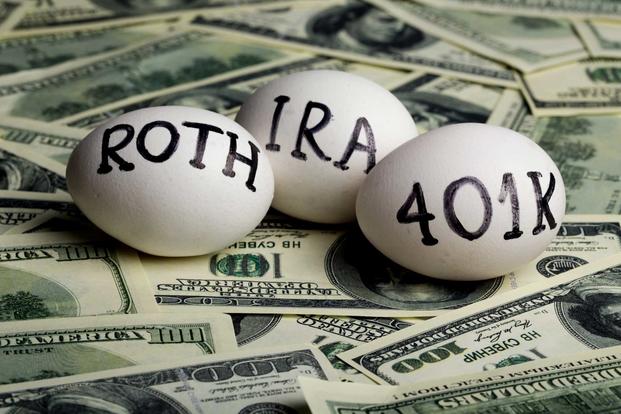Periodic reviews of where you stand relative to your retirement goal should be a key element of your financial routine. The content of the exercise may vary, but the need is there whether you are four or 40 years from retirement, and even if you don't ever plan on completely leaving the workforce.
This week, my wife and I were discussing our retirement glide path -- it has taken a bit of a beating this year -- and we covered a lot of ground, including revisiting our approach to retirement plan contributions. "Yes" was how we answered the Roth or traditional IRA question. In other words, we are going to continue to make both Roth and traditional IRA contributions to our retirement plans at work.
Over the years, we have shifted more and more of our effort to the traditional side of the house, but we just can't seem to leave Roth behind. Why does the word "Roth" hold such allure? Well, it's as simple as two words that when uttered together are very cool: "tax free." While Roth contributions don't reduce our income taxes today as traditional contributions to an employer plan do, current tax law allows those contributions (and all their earnings) to be withdrawn tax free after you are 59½ and have had the account for five years.
If you believe your tax rates may be moving higher in the future or just want to hedge against that possibility, the flexibility offered by Roth contributions is hard to ignore. Plus, there's some real beauty to having at least a portion of your retirement nest egg available without the specter of a double-digit, income-tax haircut when you use the money looming large.
While the Roth vs. traditional conversation is important, it's not the only item for your retirement review agenda. Here are three more retirement-related questions you might address:
1. How Much Are We Contributing?
If you are just starting your career, this may be as simple as ensuring you are allocating at least 10% to your retirement savings accounts and increasing what you put away with future pay raises and promotions. If you're further down the road to retirement, it may be necessary to dig a little deeper and address important questions like the next one.
2. Where Do We Stand?
Yes, good habits rule the day in your early working years. But as you get older and your retirement vision comes into focus, there should be an associated price tag and a required nest egg. The path from now until then provides a glide path by which you can chart your progress.
There are only a few levers that can help you get back on track:
- How much you contribute
- Your retirement date
- Adjustments to your retirement lifestyle
- And, of course, the rate of return you achieve on your retirement savings, which flows nicely to the last potential topic.
3. How's Our Portfolio Look?
As I'm writing, the U.S. market is down about 20% this year, and foreign stocks have fared worse. Does this necessitate adjustments to your portfolio? Does it create opportunities? Has the recent downturn changed your tolerance for risk? Regular portfolio reviews and necessary adjustments make sense.
This year, beyond the need to keep on working, we reconfirmed that a combination of traditional and Roth accounts will continue to provide us more control over how much we pay in taxes and when we pay them. As I noted earlier, our mix of Roth and traditional contributions has changed over the years, but our commitment to what I would call a tax-diversified approach to our retirement savings has remained consistent.
Get the Latest Financial Tips
Whether you're trying to balance your budget, build up your credit, select a good life insurance program or are gearing up for a home purchase, Military.com has you covered. Subscribe to Military.com and get the latest military benefit updates and tips delivered straight to your inbox.




